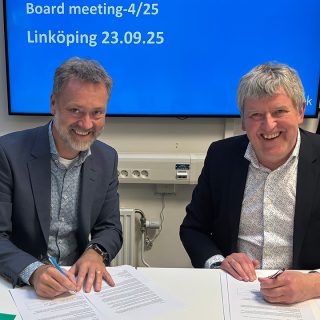Norway
Tuition fees for students outside EU and EEA
From the fall semester of 2023, state universities and colleges require tuition fees from students who are citizens of countries outside the EEA and Switzerland. There are exceptions for refugees and exchange students. A consequence of this was that near 80% of the students outside EEA and Switzerland were absent at the start of the semester. This has been critical for some of the 2-year Master programs. There are discussions to give dedicated scholarships to some particular student groups, particular from developing countries and for study programs that are important for the country’s development (e.g. hydropower development).
Sweden
Investments in engineering education. The government is making several investments in education and research to strengthen Sweden as an engineering nation and address the significant competence needs. Starting 2024, it includes increasing compensation for education in natural sciences and technology at all Swedish universities. Besides that, it expands five-year engineering programs at Uppsala, Lund and Chalmers universities and increase their research grants to strengthen the research and educational environments in electrification and battery technology.
Finland
New R&D Act will rise R&D spending to 4% GDP by 2023 in proportion with the private sector investments. Accordingly, starting with the State budget for 2024, an increase of approximately €280 million is budgeted for each year compared to the previous year. It is estimated that the funding will increase from €2.4bn budgeted for 2023 to €4.3bn in 2030, so the total additional increase would be €1.9bn over 7 years. The precondition for the continuous implementation of the Act is that private sector RDI investments will grow in proportion to public investments. The share of public funding would be one third.
Latvia
New Accreditation System. The Latvian Ministry of Education is advancing preparations of Latvian HE system towards the shift to Institutional Assessment, scheduled to initiate from 2026. In alignment with this initiative, the conceptual report titled “On the Transition to Periodic Accreditation of HEI” has been released in February 2024.
Decreasing number of students. Meanwhile Central Statistical Bureau (CSB) of Latvia reports on a decrease in number of students by 1.8% in comparison to the previous year. This decline reflects a consistent trend over the past two decades, indicating a gradual reduction in the student population within Latvia (see report here: https://stat.gov.lv/en/statistics-themes/education/higher-education/press-releases/20762-topicalities-higher-education).
Estonia
New R&D&I strategy and R&D law in making. One of the developments in Estonia´s R&D’s ecosystem is the decision for the first time to draft and adopt the Estonian R&D and innovation strategy (2021-2035) jointly by the Ministry of Education and Research and the Ministry of Economic Affairs and Communications. This signaled the government´s wish to align more the sides of research, innovation and business environment. Another process is related to the renewal of the Organization of Research and Development Act (the so called “Estonian R&D law”) which was adopted in 1997 and needed an update. The renewal process was opened in 2020 and is still in ongoing. It would mean reaching an agreement among other things, how the R&D&I funding would be distributed between different stakeholders, most importantly between public and private research organizations. So far, the decisions have not been reached.
Denmark
New master’s degrees education reform in Denmark
On June 27, 2023, the government agreed on a comprehensive reform of university education in Denmark. The reform is expected to introduce new flexible pathways for master’s degrees, including shorter programs of 1¼ years (75 ECTS), flexible professional master’s programs (75-120 ECTS), and 4-year master’s programs with part-time employment in industry (120 ECTS). The Reform Committee is tasked with devising an overall plan for restructuring across universities, outlining the distribution among key academic areas. For technical sciences it is expected that 15% of all master’s degrees should involve part time employment in industry. The reform is also meant to enhance lifelong learning opportunities, thus ensuring a more competitive and accelerated entry into the workforce, and to open up for more international students in Denmark in high-demand fields. The final framework for the reform is currently negotiated. The first graduates from these new programs are expected in 2029. Read more at Reform af universitetsuddannelserne i Danmark
Iceland
Increased efforts in STEM education. The government in Iceland has recently launched a campaign to increase the number of students pursuing education in STEM fields. This initiative includes targeted funding for the University of Iceland and the University of Akureyri to enhance programs in engineering and health sciences, and to promote STEM education for pre-university teachers. Additionally, Reykjavik University, which graduates more than half of all STEM students and over two-thirds of engineering students in Iceland, received direct government support to begin planning a new research and innovation building focused on engineering and technology studies. New university funding model. To further encourage academic success, the government is implementing a new funding model for universities that will reward institutions based on the number of students who complete their studies and put more emphasis on societal impact.


